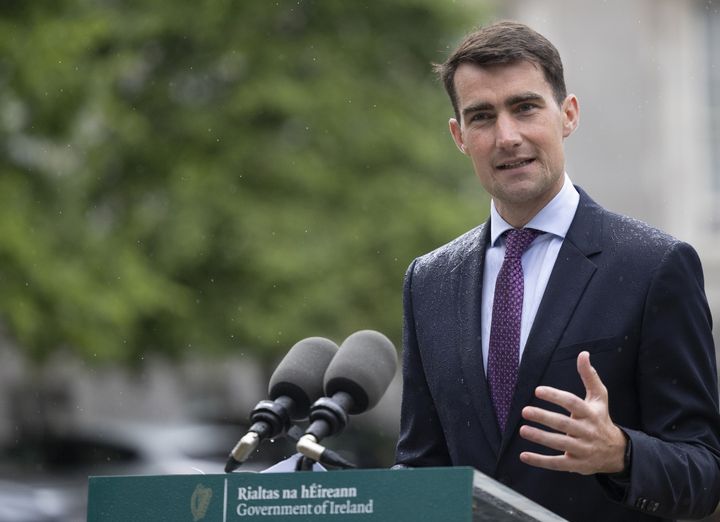
Finance Minister Jack Chambers is optimistic despite a drop in growth. Photo: Sam Boal/Collins The unexpected 1pc drop in Ireland’s gross domestic product (GDP) in the second quarter of this year is probably nothing to lose sleep over in the short term. Finance Minister Jack Chambers certainly does not want us to worry.
The fall may mean that GDP is now down 4.4pc in 2024 compared to last year, but the minister insisted this week that this is “not a useful measure in assessing the living standards of domestic residents, given the outsized role the multinational sector plays in our economy” — almost word for word the same response he gave back in July on publication of a different set of numbers. If nothing else, it proves the new minister’s department has an admirable approach to recycling that would shame their colleagues in the Department of the Environment.

He is not wrong, of course. Ireland’s GDP is so heavily reliant on a few small multinationals that, in a single year in 2015, it went up by 26pc, as a result of companies moving their bases to Ireland to reduce their tax burdens. It led US economist Paul Krugman to coin the dismissive term “leprechaun economics” to sum up the phenomenon, which was making it impossible to estimate Ireland’s real level of debt.
Economists have since ceased to rely on GDP alone, preferring more nuanced yardsticks such as Modified Domestic Demand, which mitigate somewhat the distorting effect of multinationals. The jargon and the figures go over most people’s heads. All the majority of us really have to go on is how we feel in our pockets.
In that respect, the finance minister’s reference to the “living standards of domestic residents” did feel slightly detached from the day-to-day reality of many families’ experiences. Employment remains high and analysts expect wages to rise above inflation in the next few years; but the increase will likely still not suffice to keep up with the cost of housing. The Irish Fiscal Advisory Council warned this week about the rapid hikes in rent and medical costs.
Inflation, likewise, may be at its lowest level in three years, but having hit highs of October 2022, people are still feeling the pinch at the tills. Prices continue to rise, only at a slower rate than before. Consumer confidence fell back in August and remains well below the long-term average.
A giveaway Budget may improve spenders’ spirits. Corporate tax receipts more than doubled in August compared to the same month last year. The finance minister has money to spend.
The fundamentals of the economy are sound, but we are not immune to risks from abroad. For every piece of economic good news, there is a small dark cloud worth keeping an eye on, Germany’s struggle to recover from a technical recession not least. Irish manufacturing has fallen in seven of the last eight quarters.
To reiterate, any concern at Ireland’s latest GDP figures can probably be set aside for now. But after years in which rising GDP well ahead of our nearest neighbours was used to convince the Irish we’d never had it so good, politicians can hardly be surprised if we greet any signs of a slowdown, however modest, with trepidation. We have learned to our cost in recent memory that what the economy gives with one hand can swiftly be snatched away by the other.
Join the Irish Independent WhatsApp channel Stay up to date with all the latest news.














